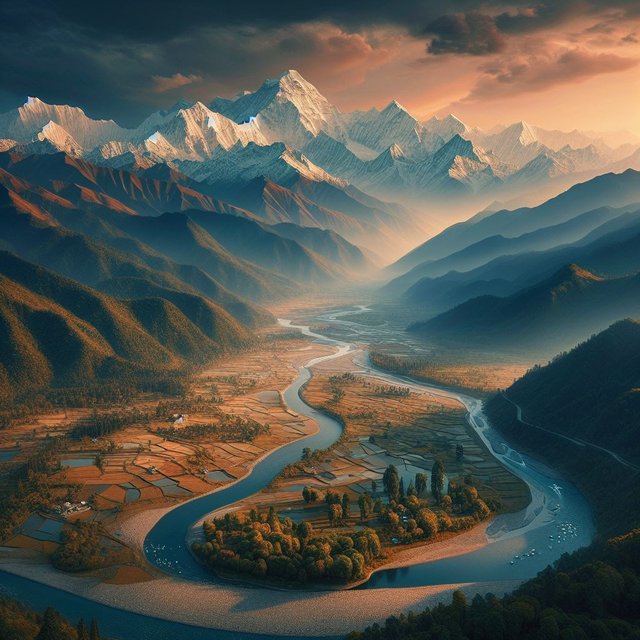The Himalayas: Guardians of the World's Ecosystem
The Himalayan mountain range, often referred to as the "Roof of the World," stands as a majestic and awe-inspiring natural wonder. But beyond its breathtaking beauty, the Himalayas play a crucial role as the most important ecosystem in the world. From regulating global climate patterns to providing essential resources for millions of people, the Himalayas serve as the lifeline of the planet's ecosystem. Let's delve into why the Himalayas are of paramount importance and how they contribute to the well-being of the Earth.
Climate Regulation

The Himalayas act as a natural barrier, influencing weather patterns and climate systems across the globe. The massive size of the Himalayan range disrupts the flow of air masses, causing precipitation and influencing monsoon patterns in the Indian subcontinent and beyond. The Himalayas also play a critical role in regulating the Earth's temperature by reflecting sunlight and helping maintain the planet's overall climate balance.
Water Tower of Asia

Often referred to as the "Water Tower of Asia," the Himalayas are the source of some of the world's major rivers, including the Ganges, Indus, Brahmaputra, Yangtze, and Yellow River systems. These rivers provide water for drinking, agriculture, and industry to millions of people across South Asia and China. The melting glaciers of the Himalayas also contribute to the replenishment of groundwater reserves, ensuring the sustainability of water resources in the region.
Biodiversity Hotspot

The Himalayan region is one of the most biodiverse areas on Earth, with a rich variety of flora and fauna adapted to its diverse climatic conditions. From lush tropical forests in the foothills to alpine meadows and snow leopard habitats at higher elevations, the Himalayas support a wide range of ecosystems and species. This biodiversity not only enhances the ecological resilience of the region but also provides invaluable ecosystem services such as pollination, soil conservation, and carbon sequestration.
Cultural and Spiritual Significance

The Himalayas are not only a natural marvel but also hold immense cultural and spiritual significance for millions of people. The region is home to numerous indigenous communities and cultures that have thrived in harmony with the mountains for centuries. The Himalayas are revered as sacred landscapes in Hinduism, Buddhism, Jainism, and other religious traditions, with pilgrimage sites and monasteries dotting the mountainous terrain. This cultural heritage adds to the intrinsic value of the Himalayas and underscores the need for their conservation and protection.
Threats and Conservation Challenges

Despite their ecological and cultural importance, the Himalayas face numerous threats from human activities and climate change. Deforestation, habitat loss, pollution, and unsustainable development practices are putting immense pressure on the fragile ecosystems of the Himalayan region. Additionally, the melting of glaciers due to global warming poses a significant risk to water resources and the livelihoods of millions of people downstream.

Conclusion
In conclusion, the Himalayas are not just a geographical feature but the cornerstone of the world's ecosystem. As the highest and most extensive mountain range on Earth, the Himalayas play a vital role in regulating climate patterns, providing water resources, preserving biodiversity, and sustaining cultural traditions. Protecting and conserving the Himalayas is not only essential for the well-being of the region but also for the health and prosperity of the entire planet. It is imperative that we recognize the importance of the Himalayas and take collective action to ensure their preservation for future generations.
Note: AI assistance was used to create images, perform spell checks, and assist with rephrasing.
Congratulations, your post has been upvoted by @upex with a 59.82% upvote. We invite you to continue producing quality content and join our Discord community here. Keep up the good work! #upex